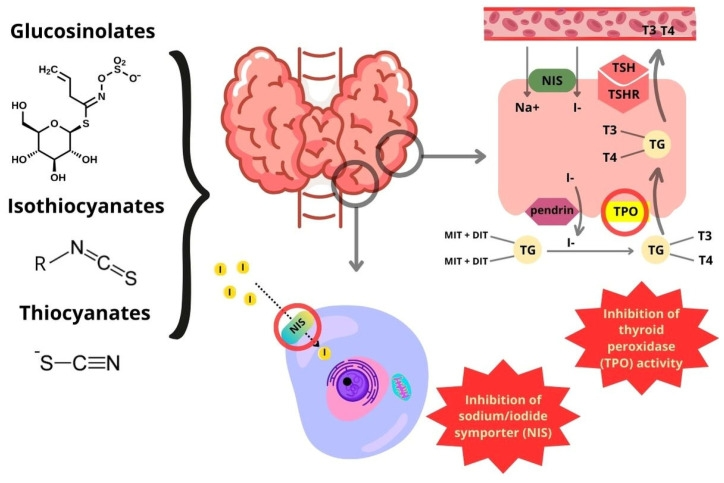At least some members have been saying that any goitrogenic effect of brassicas is massively over-stated. And there might be no impact.
There have been stories of people living on wheelbarrows of cabbage and nothing else - ending up with goitres. But such extreme dietary intakes could actually be very low in the required amino acids, iodine, selenium, etc.
This recent review is worth a read.
Do Brassica Vegetables Affect Thyroid Function?-A Comprehensive Systematic Review.
Abstract
Brassica vegetables are widely consumed all over the world, especially in North America, Asia, and Europe. They are a rich source of sulfur compounds, such as glucosinolates (GLSs) and isothiocyanates (ITCs), which provide health benefits but are also suspected of having a goitrogenic effect. Adhering to PRISMA guidelines, we conducted a systematic review to assess the impact of dietary interventions on thyroid function, in terms of the potential risk for people with thyroid dysfunctions. We analyzed the results of 123 articles of in vitro, animal, and human studies, describing the impact of brassica plants and extracts on thyroid mass and histology, blood levels of TSH, T3, T4, iodine uptake, and the effect on thyroid cancer cells. We also presented the mechanisms of the goitrogenic potential of GLSs and ITCs, the limitations of the studies included, as well as further research directions. The vast majority of the results cast doubt on previous assumptions claiming that brassica plants have antithyroid effects in humans. Instead, they indicate that including brassica vegetables in the daily diet, particularly when accompanied by adequate iodine intake, poses no adverse effects on thyroid function.
Open access here:
europepmc.org/article/MED/3...
greygoose

